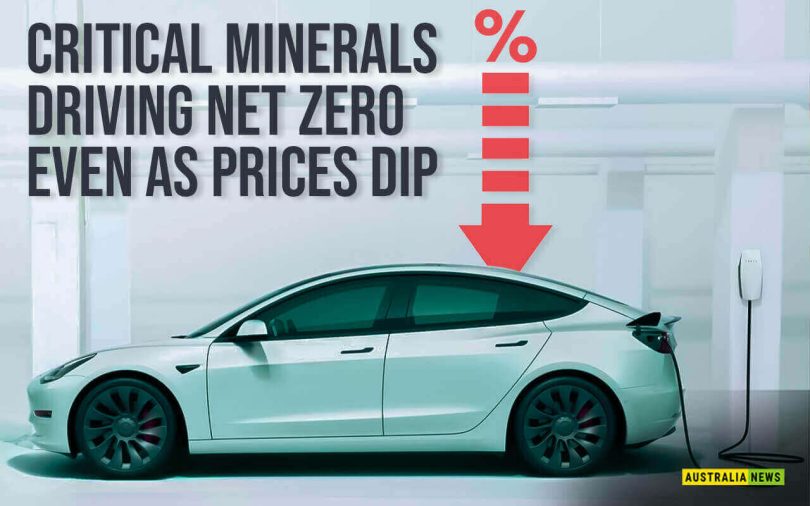Australia’s essential minerals may have “paved the way to net zero,” but during the next two years, the value of exports is expected to decline from a historic high.
According to official data issued on Tuesday, the growing demand for battery metals is being driven by the world’s booming sales of electric vehicles.
In addition to being a top exporter of iron ore, coal, and liquefied natural gas (LNG), Australia is a leading supplier of battery materials like lithium, cobalt, copper, and nickel.
“Demand for Australian minerals is growing as the world works to build the technology needed to decarbonize,” Resources Minister Madeleine King stated.
“The road to net zero is paved by Australia’s critical minerals.”
However, according to the September 2023 Resources and Energy Quarterly, prices for the majority of important resources and energy commodities have dropped over the last three months and are expected to continue to decline.
According to projections, Australia’s lithium exports will drop from a record $20 billion in 2022–2023 to $18 billion this year and $16 billion in 2024–2025.
Profits from metallurgical coal—used to create steel—are also anticipated to decline, and profits from thermal coal—used to generate electricity—will plummet much worse.
Due to the unpredictability of the global economy, iron ore and gas export revenues will also suffer.
Since households and industry have anticipated relying on the gas “safety net” for decades, the head of the oil and gas industry, Samantha McCulloch, has advocated for reduced red tape so companies may invest in new gas supplies.
“Our LNG exports can also help importing nations lower emissions by switching to gas,” Ms. McCulloch conveyed.
She said that Australia shouldn’t miss out because the US and Qatar had boosted production and solidified their positions in the market.
To develop a plan for the evolving role of gas, the federal government has published a consultation paper.
The Future Gas Strategy will offer a medium- and long-term plan for gas use and production as the globe’s decarbonizer (to 2035 and 2050, respectively).
“We need to ensure gas demand decreases faster than supply through the energy transition,” Ms. King continued.
“Gas shortages, supply disruptions, and high prices are among the consequences of reducing supply faster than demand.”
The general public has been encouraged to participate, together with manufacturers and distributors, domestic and foreign consumers, and supporters of the LNG import terminal project.
Next year, the gas plan is expected to be completed.
- Published By Team Australia News








